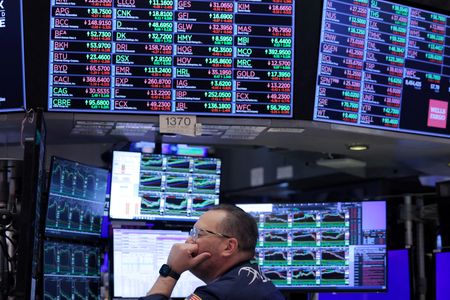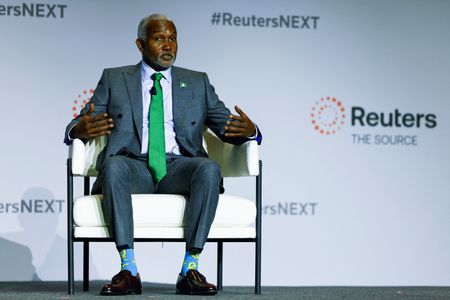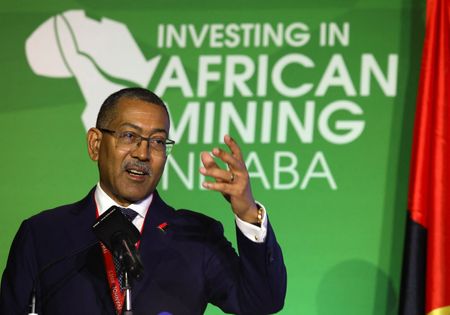By Nicole Jao
NEW YORK (Reuters) -Oil prices extended gains after settlement on Wednesday after the U.S. imposed Ukraine-related sanctions on Russia, targeting oil companies.
Brent crude futures were up $3.03 or 4.94% at $64.35 after settlement at 6 p.m. EDT (2200 GMT) and U.S. West Texas Intermediate crude futures climbed $1.42 or 2.43% to $59.92.
Earlier, Brent futures settled $1.27, or 2.07%, higher at $62.59 a barrel, while U.S. West Texas Intermediate crude futures climbed $1.26, or 2.20%, to $58.50.
“Given President Putin’s refusal to end this senseless war, Treasury is sanctioning Russia’s two largest oil companies that fund the Kremlin’s war machine,” Treasury Secretary Scott Bessent said on Wednesday. The new sanctions target Lukoil and Rosneft, two of Russia’s largest oil companies.
Oil prices were also supported by growing U.S. energy demand.
U.S. crude oil, gasoline and distillate inventories fell last week as refining activity and demand strengthened, the Energy Information Administration said on Wednesday. [EIA/S]
Crude stocks fell by 961,000 barrels to 422.8 million barrels last week, compared with analysts’ expectations in a Reuters poll for a 1.2 million-barrel rise.
“We have got total oil demand above 20 million bpd. Very impressive for shoulder season. It shows the demand side of the equation of oil is robust,” said Phil Flynn, a senior analyst with Price Futures Group. Shoulder season, which typically spans from late September to November, sees relatively soft energy demand.
Investors were also closely watching the progress of U.S.-China trade talks as officials from both countries are set to meet this week in Malaysia.
U.S. President Donald Trump said on Monday he expected to work out a fair trade deal with Chinese President Xi Jinping, whom he was due to meet in South Korea next week. On Wednesday, Trump said he has a long meeting scheduled with Xi during an upcoming trip to South Korea.
Supply concerns flared on news that a summit between Trump and Russian President Vladimir Putin had been put on hold, and on disruption fears as Western governments pressured Asian buyers to reduce their purchases of Russian oil.
Trump said he spoke with Indian Prime Minister Narendra Modi on Tuesday, adding that Modi assured him India would be limiting its oil purchases from Russia.
“Oil prices climbed after reports suggested the U.S. and India are close to finalising a trade deal that could see India gradually cut imports of Russian crude, potentially lifting demand for other grades,” MUFG analyst Soojin Kim said.
India’s Mint newspaper reported on Wednesday that the two countries were nearing a long-stalled trade agreement that would reduce U.S. tariffs on Indian imports to 15-16% from 50%.
(Reporting by Nicole Jao in New York; Additinoal reporting by Ahmad Ghaddar in London, Siyi Liu, Jeslyn Lerh and Florence Tan in Singapore; Editing by Diane Craft and Matthew Lewis)










